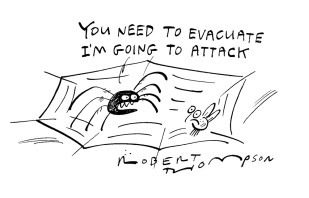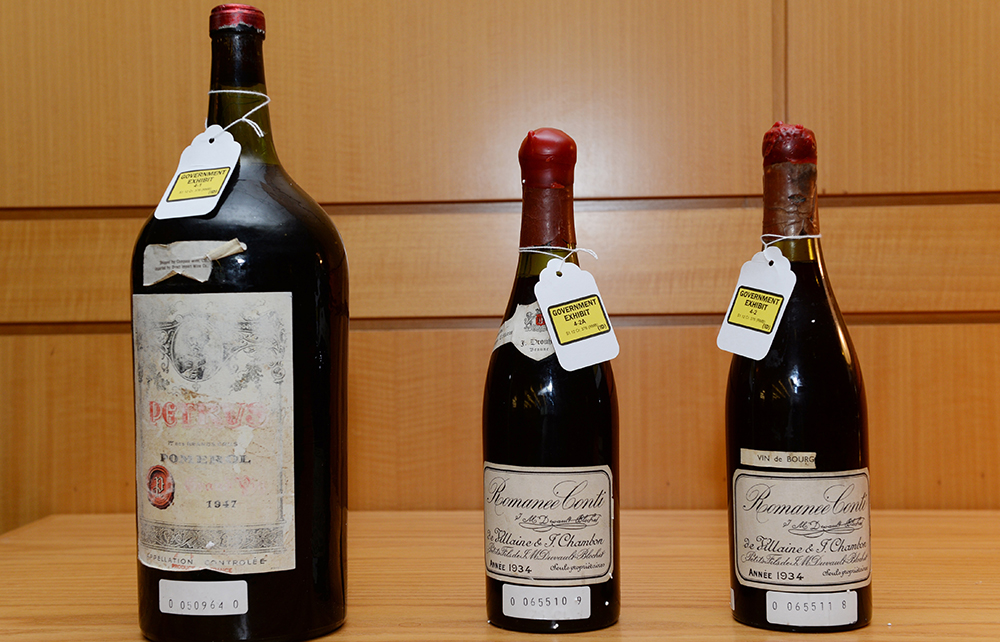In 2012 the esoteric world of wine connoisseurship made the news when the FBI raided the Californian home of an Indonesian national called Rudy Kurniawan. They found a factory for creating fake wines with bottles, corks, labels and even recipes. According to Rebecca Gibb in Vintage Crime, Kurniawan’s counterfeit Mouton Rothschild from the legendary 1945 vintage consisted of two parts Cos d’Estournel, one part Château Palmer and one part California cabernet. Now tell me that doesn’t sound delicious.
Most people don’t care about provenance as long as the wine tastes good and isn’t actually poisonous
The book takes the reader on a highly entertaining tour of wine fraud from ancient times up to the present day. Gibb is a Master of Wine but wears her erudition lightly. Perhaps a little too lightly at times, leading to sentences such as: ‘Socialism and trade unionism gained more followers in the last third of the 19th century than a Hollywood A-list celebrity on social media.’ I also wish Gibb would trust the reader a little more. We don’t need to be told that The Simpsons is ‘one of the longest-running American television shows, as well as Time magazine’s best show of the 20th century’. I suspect the hand of an overzealous editor. But at its best Vintage Crime is an eye-opening account of how wine fraudsters have been pulling the wool over our eyes for centuries.
The book is full of brilliant details, such as that the Cruse headquarters in Bordeaux, the site of one of the biggest fraudulent wine scandals in French history, is ‘now home to a company specialising in unblocking toilets’. There are some good puns too: that chapter is entitled ‘From the Quai to the dock’. In the 1970s, the Cruse family was selling cheaper southern wine as Bordeaux, but historically adulteration has tended to break into the public consciousness only when people started dying. Since Roman times, lead has been used to sweeten wine, though Gibb cites the historian Alan Cameron who thinks that lead poisoning almost certainly wasn’t the cause of the fall of the Roman empire. She does give more credence to a theory that Beethoven’s deafness was the result of lead poisoning from adulterated wine.
In the 20th century, lead dropped out of favour but adulteration continued. There was the so-called antifreeze scandal in 1980s Austria, when growers were found to have been adding diethylene glycol to make their wines taste sweeter. This is toxic in large doses (though not as toxic as actual antifreeze, which is ethylene glycol). While the publicity wrecked the Austrian wine industry, nobody actually died. Meanwhile, in Italy some producers were adding methanol, killing quite a few customers, but everyone carried on drinking Chianti.
The appellation contrôlée system that developed in France in the 1930s was a reaction to wine fraud. Growers were tired of unscrupulous merchants passing off spurious wines as champagne or Châteauneuf-du-Pape. In one instance, nine barrels of genuine Châteauneuf-du-Pape were stretched with ‘two barrels of Algerian red, 24 litres of blackcurrant juice, 250 grams of metabisulfite and 250 grams of beef blood’. Imagine that with a rare steak.

Passions ran high. There were riots in Champagne in 1911 and growers in the Aubois marched under a banner ‘Champagne or death’ when they thought they might be excluded from the newly defined region. But it was decades before the system took effect. Until the 1970s it was still routine for merchants to add a dose of something strong and southern to beef up burgundy. Wine lovers got a shock in the 1980s when this practice finally came to an end and they had to drink weedy pure vintage pinot noir. Sometimes adulteration serves a purpose. Most people don’t care about provenance as long as the wine tastes good and isn’t actually poisonous.
But for those who collect high-end wine, it’s a different story. Authenticity is everything, or you’ve just got a bottle of old, and possibly undrinkable, wine. In one of the best chapters in the book Gibb looks at the story of Hardy Rodenstock, a German wine collector. He seemed to have an uncanny ability to unearth impossibly rare wines which were then sold by Michael Broadbent at Christie’s, including a selection from the cellar of Thomas Jefferson. A 1787 Lafitte (sic) reached $156,000 at auction in 1985. Broadbent authenticated the bottles but one buyer, a billionaire called Bill Koch, had his doubts and set about investigating with the help of Jim Elroy, a former FBI agent. Not surprisingly, the Jefferson collection turned out to be spurious.
Broadbent’s complicity in Rodenstock’s crimes has been much debated ever since. At the very least he was guilty of not doing due diligence. It’s a similar story with Kurniawan. Maureen Downey, an expert on wine fraud who testified at his trial, thinks certain auction houses knew that his wine was ‘suspect at best’.






Comments